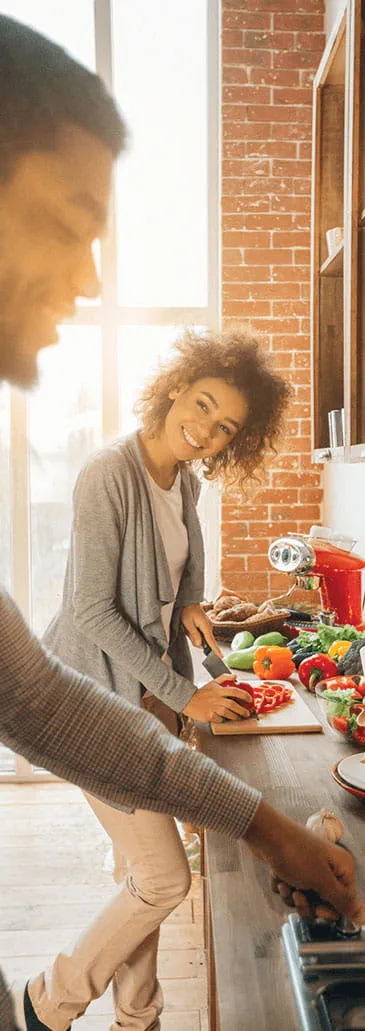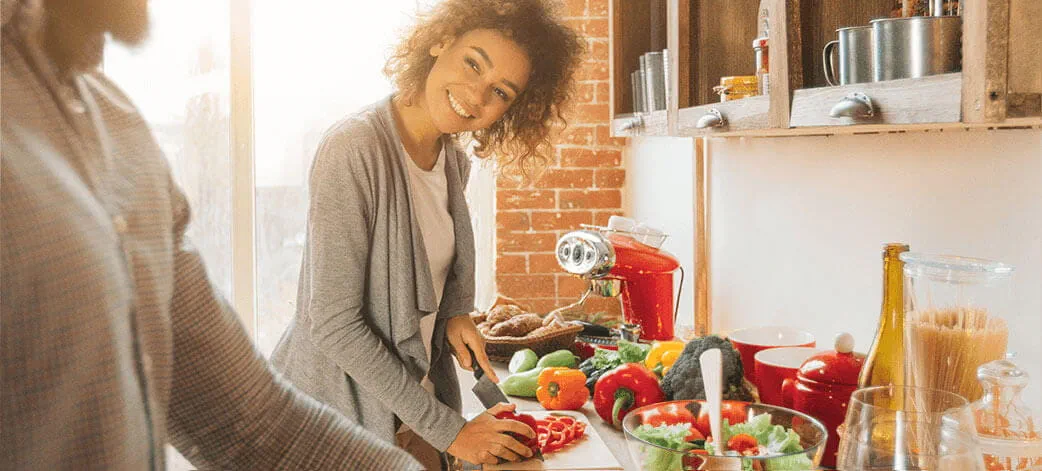Guide to cooking eggs
Whether they’re poached, scrambled or fried, eggs are a staple ingredient in many a breakfast and brunch dish. A natural source of nutrients and packed full of protein, eggs are also extremely good for our health. While they might seem like a simple ingredient, the truth is there’s a science behind cooking the perfect egg.
It’s all to do with the proteins contained inside, and how they react once heat is applied. Of course, you don’t need to be a science eggs-pert to know how to cook eggs, but having a good idea of the timings means you’ll be whipping up perfectly poached eggs every time. Here we’ll take you through our ultimate guide to cooking egg dishes at home. Let’s get cracking!
How to make poached eggs

Few things form such an integral part of brunch than a classic poached egg. Runny and golden, these poached yolks are the star ingredient in both eggs benedict and eggs Florentine. The secret behind cooking the perfect poached egg is to make sure that the eggs you are using are super fresh, as this will help them to hold their shape once cooked.
There are different methods to making poached eggs, but the easiest way is to first crack your egg into a saucer and bring a pan of water (at least 5cm deep) to a simmer. Next, tip the egg into the pan with the yolk following the white. Cook on the heat for 2 minutes, then turn off the heat and leave the egg in the pan for 8-10 minutes. Lift the egg out of the pan using a slotted spoon and serve!
How to fry an egg
Crisp at the bottom with a soft runny yolk on top, fried eggs are best served sunny side up. Whether enjoyed as part of a delicious breakfast like in our recipes for potato cakes with eggs and bacon, or aside our special fried rice, fried eggs feature in a variety of different cuisines around the world.
You can fry an egg in pretty much any fat you choose – from coconut oil to butter – but you’ll want to make sure the egg takes on the flavours of the fat you choose. Heat the oil or butter in a frying pan until it begins to sizzle slightly. If you feel confident enough, crack the egg straight into the pan, but be careful to avoid any bits of shell dropping in. Alternatively, you can crack the egg onto a saucer first and then slide it into the pan. Leave the egg for 3 minutes over a low heat, checking that the white is all set. If you are unsure whether your egg is cooked, allow a further 30 seconds.
How to make scrambled egg

Scrambling an egg is one of the easiest and quickest ways to cook it. Scrambled eggs can be made quickly in the microwave, or over the hob. They go excellently with salmon like in our sizzling scrambled eggs recipe but you could never go wrong with a classic scrambled eggs on toast.
To make scrambled egg in the microwave, add a knob of butter or oil to the dish you are using, crack in 2 eggs and whisk. You can add a splash of milk to loosen if you like. Next, microwave your eggs on a high heat (800W) for 30 seconds and run a fork through the eggs. If they need longer, microwave for another 30 seconds and break up with a fork.
Using a pan, crack your eggs and a splash of milk into a bowl and season with salt and pepper. Melt the butter or oil over a medium heat and add your eggs. Using a spatula, move the egg mixture from the sides on the pan into the centre. When the egg is mostly set, remove from the heat and enjoy!
How long does it take to boil an egg
Boiling an egg is all down to timing. Lift an egg out too soon and you’ll have a soft runny mess, too long and your egg will be hard boiled and chalky. No matter how you like to eat boiled eggs – soft with a dippy yolk, or hard boiled like in our curried scotch eggs, here are some timings to stick to:
How long to soft boil an egg
- 5 minutes: set white and a runny yolk, perfect for dippy eggs and soldiers.
- 6 minutes: soft yolk but less runny
- 7 minutes: your egg will be almost set and slightly sticky
How long to hard boil an egg
- 8 minutes: softly set, ideal for making scotch eggs
- 10 minutes: a classic hard-boiled egg – mashable but not dry
So there you have it – our favourite ways to cook an egg. Why not explore our range of eggy recipes and get creative in your kitchen?








